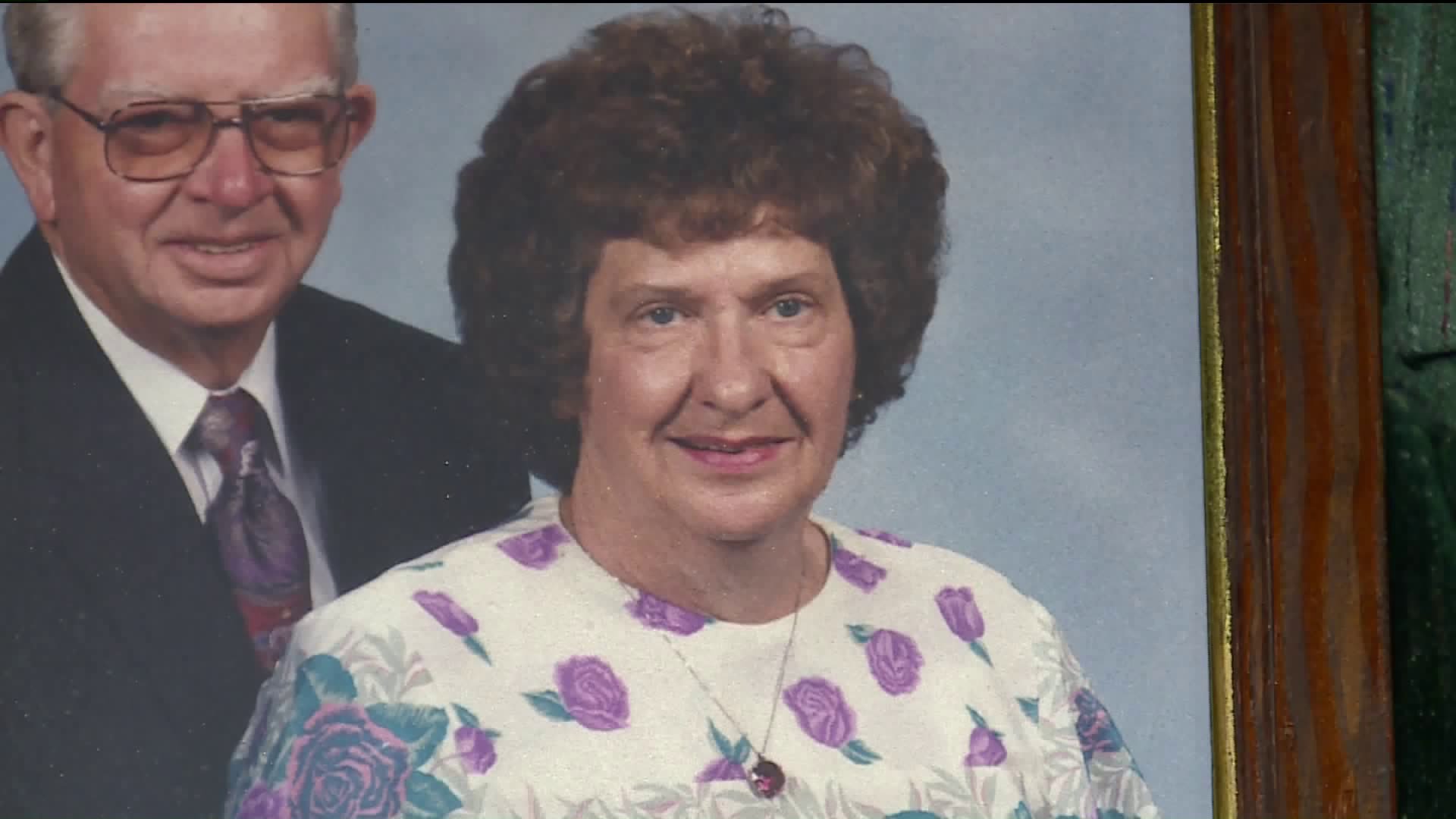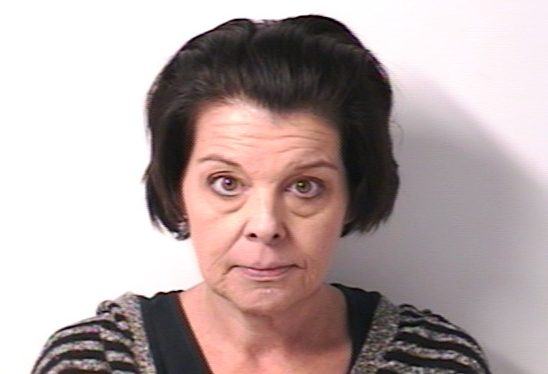TOWN OF WALLKILL — Marina Blagodar smiled as her 15-year-old son,
Max, and her mom, Nadia Chernyakova, entered the glass-walled room in
the cardiac unit at Orange Regional Medical Center last week.
Max
moved a chair closer to the bed where his 31-year-old sister, also
named Marina, lay. Chernyakova sat and silently rubbed Marina’s foot
beneath the bedcovers. Caring for Marina has consumed the family’s life
since October 2014, when Marina suffered a cardiac event at a tanning
salon in Brooklyn that led to brain damage, leaving her bedridden and
dependent upon a ventilator and feeding tube.
After that,
Blagodar cared for her daughter at home, with the help of home health
aides. Marina was admitted to ORMC Oct. 17 with low blood pressure, and
hasn’t been allowed to leave. Her mother wants to bring Marina back
home, but the hospital is petitioning for guardianship: It would allow
testing of Marina’s brain function to determine the best care for her,
according to court papers. But Blagodar said she is afraid the hospital
just wants to cut off life support and let her daughter die.
A
hearing scheduled for Nov. 21 before Orange County Supreme Court Justice
Robert Onofry was adjourned until Dec. 12 to allow the county
Department of Social Services, which has temporary guardianship of
Marina, to secure her past medical records, which Blagodar at first
refused to provide.
About a year ago, the family moved to the
Town of Crawford. The spacious house and yard offered fresh air and
quiet that their Brooklyn apartment could not. Blagodar found a doctor
to provide regular care for Marina in Monroe; Max enrolled at Pine Bush
High School, made friends and played football.
As part of
Marina’s care, Blagodar said, she brought her daughter to ORMC for
check-ups – the last one was in early October, and the doctors and
nurses there couldn’t have been kinder, Blagodar said. Two weeks later,
on Oct. 17, Marina’s blood pressure became dangerously low, and she
returned to the hospital, with Blagodar at her side day and night.
Her
condition improved to the point where discharge papers were being
prepared, and a hospital bed was ordered to be brought to Blagodar’s
home, according to Blagodar. But court records related to the
guardianship petition cite otherwise: Marina had pressure ulcers with
bone exposure, severe sepsis with septic shock, pneumonia, a
urinary-tract infection, and gastrointestinal hemorrhage. Also, Blagodar
refused to release previous medical records, and interfered with nurses
providing care, court papers stated.
In the preliminary court
appearance on Nov. 21, Blagodar refused Onofry’s order multiple times to
release Marina’s past medical records, insisting it was not in Marina’s
best interest. She said she was concerned that providing that
information would smooth the path for the hospital’s intention to test
Marina for brain death. Onofry assured her that the hearing itself was
postponed, and urged her several times to release the needed records.
“This court believes it is in your daughter’s best interest that
medical providers have all past case history,” Onofry told Blagodar, who
stood crying with her son at her side. “How is it in your daughter’s
best interest to conceal vital information?”
Finally, Max and his
mother together named three hospitals and a couple of doctors who cared
for Marina over the years, and DSS representatives said they would
subpoena the medical records if necessary.
Until the hearing Dec. 12, however, Onofry ruled that Marina stay at the hospital.
“Based
upon preliminary reports provided to the court ... because of the
serious medical condition your daughter was in when she was admitted to
the hospital, it calls into question the safety and efficiency of the
medical care your daughter was receiving when she was treated,” the
judge said.
“That was a lie!” Blagodar responded to the judge,
adding that nurses and hospital staff fabricated reports that Marina’s
ulcers had bone exposure.
Blagodar and her son pleaded with the
judge for Marina’s return home, saying her weak immune system makes her
more prone to infections in a hospital setting.
The judge was not
moved: “I am not authorizing her return home, because of the condition
of your daughter when she was admitted.”
Earlier in the week, Blagodar explained that the hospital’s
push for guardianship took her by surprise. Greeting a visitor to ORMC’S
cardiac unit with a tired smile, she straightened Marina’s blankets,
plugged in a phone charger for Max, and told her story.
“On Oct.
23, I was told that the palliative care team – hospice, end of life –
wanted to meet with me,” Blagodar said, with a thick accent that belied
her Ukraine birthplace. “I said, ‘No, thank you, we don’t need it.’ But
they wouldn’t let her leave.”
Blagodar points to a whiteboard in
the room. “Those people” - nurse leaders and other ORMC caregivers -
“they lie about her condition. All they care about is organ donation.
They want my daughter’s organs.”
On Nov. 1, Onofry granted Orange
Regional’s petition for temporary guardianship of Marina. The petition -
for which the Dec. 12 hearing is scheduled - included authorization for
the hospital to perform a CAT scan of Marina’s brain and other tests to
determine if she has suffered brain death. If brain activity is
discovered, ORMC requested authority to choose Marina’s place of abode,
either her home or a nursing home.
The alternative, however, is
what alarms Blagodar: “If the neurological findings are conclusive that
(Marina) is brain dead, the Petitioner (ORMC) requests an order
directing the refusal, withholding and/or withdrawing all life support
and devices,” additional court papers said.
Blagodar says further
testing of Marina’s brain is unnecessary, as tests have been done over
the years. She insists Marina responds to stimuli, and that she is not
brain-dead.
“Once their testing is over, they could take her off
of life support,” Blagodar worried. “This is not in her best interest.
Every second I thank God I have her here with me. You don’t have to kill
people just because they’re sick.”
Orange Regional Medical Center could not comment specifically
on the case, according to Rob Lee, spokesman for the Greater Hudson
Valley Health System serving the hospital.
“Our goal as a
hospital is to compassionately care for the patients we serve, follow
accepted medical standards, and adhere to New York State law,” Lee said.
“We are responding accordingly to the situation at hand with the utmost
care and diligence, but we cannot comment on the complex specifics of
this particular case out of respect for patient confidentiality.”
Arthur
L. Caplan, Ph.D., is head of medical ethics for NYU Langone Health.
“The question becomes, if a patient has suffered so much brain damage
that she could have brain death, who has the right to take the patient
off life support?” Caplan said. “But you can’t ask a doctor to treat a
patient without a proper diagnosis. The hospital should have the right
to determine if the patient is dead.”
He said that a hospital’s
pursuit of guardianship is not a common practice: “It’s difficult to
remove a competent mom. They would have to prove she is harming her
daughter. If there is no evidence her daughter is suffering or dead,
they could rule in favor of the mother. But if the mother is in denial,
and not doing what is in her daughter’s best interest, they could remove
her.”
In the meantime, Marina is still unresponsive in a bed at
the hospital, her eyes closed and mouth partly open. Intravenous lines, a
ventilator tube, a feeding tube and other wires snake their way from
various machines until they disappear under the sheets and blankets that
cover her. Her mother sleeps in a chair beside her, worried what next
month will bring.
Full Article & Source:
Mother, ORMC in court dispute over care of brain-damaged daughter





















